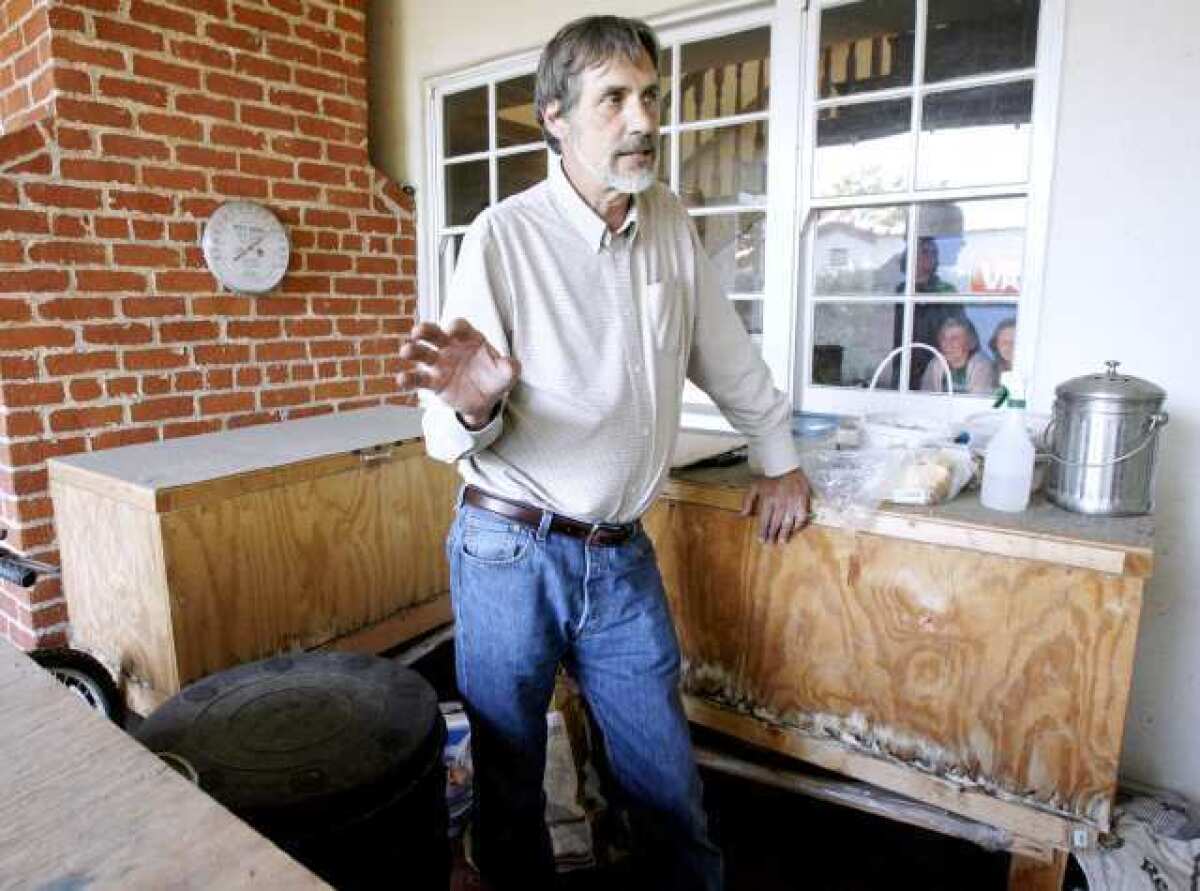Meet the worm wrangler: Chris Jung

- Share via
Chris Jung has 100,000 worms he wants to sell you.
In the backyard of his family’s Glendale home, where those 100 pounds of red wigglers live happily in wooden boxes, they produce some of the most balanced compost money can buy.
One pound at a time, Jung sells the worms to people from Lancaster to Westwood who turn their apple peels, lettuce and egg shells into fertilizer.
“The whole neighborhood thinks I’m a nut,” he joked on a recent afternoon, presiding over 10 of his compost bins in which he decomposes vegetable matter and yard waste.
Even so, Jung can point to several neighbors who collect their own kitchen scraps and hang them on his gate twice a week to help feed the wigglers.
Jung’s worm hobby began 10 years ago at the suggestion of a friend. He plucked his first worms after the rain from his wet backyard and they have doubled every 60 to 90 days with each new yellow egg yielding one to six worms.
While at a fair in Kenneth Village, he met a Glendale city employee who was looking for a local worm provider. The city didn’t have one, though it had been selling compost bins to residents since 1992.
Jung volunteered and has since become a city resource as one of the few Los Angeles-area worm suppliers, selling anywhere from 10 to 20 pounds of worms each month.
Collectively, Jung’s wife calls the worms “Tiffany” because to manage them takes up so much of his time — about half of his weekend.
But as an owner of a steel fabrication company, Jung’s day job has him sitting at a desk all day, and he welcomes the chance to dirty his hands outside, even when that means letting decomposed worm castings or horse dung (a recent experiment) fall through his fingertips.
“A lot of these people are — and I probably am too — they’re a little shy of a straight line,” Jung said of his fellow worm sellers. “I like to think I’m kind of normal, but just to do it, you get a lot of fruits and nuts, so to speak.”
Mario Nunez, of Glendale’s Integrated Waste Management Division, said the city has sold 24 worm bins to residents this year. In 2011, 78 residents bought the apparatuses, with nearly 2,000 sold since 1992.
To provide enough food for the wigglers, Jung collects scrap vegetable stems and leaves that merchants toss in the trash at the Kenneth Village farmers market.
He has come to learn that the worms love watermelon — after three days of placing one in a bin, a tangled ball of worms can munch the rind into “a sheet of paper.”
“Cantaloupe is even cooler,” Jung said, because the corrugated rind transforms into a doily before the worms completely finish it off.
What’s left are the mineral-rich castings, which are soft and black and smell like the forest floor. Huntington Library & Botanical Gardens buys about 20 gallons of those castings from Jung each month for their greenhouses.
“People think it’s nasty, but it’s not really nasty,” Nunez said. “This is a normal process of vegetation to regenerate.”